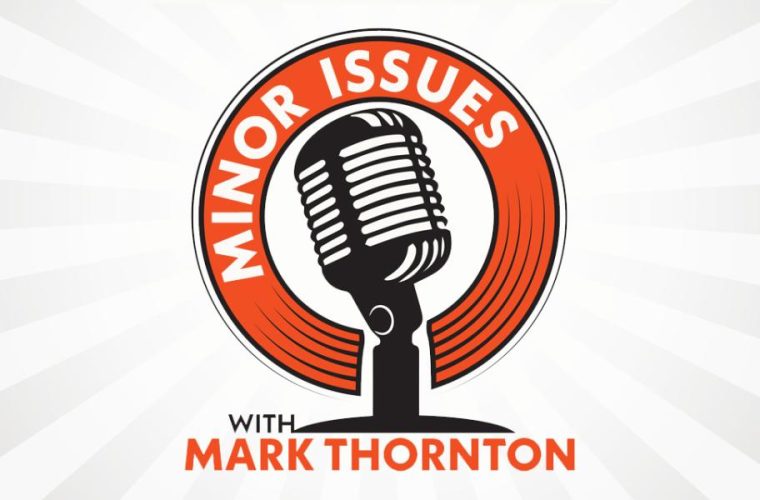
The Theory and Practice of Conspiracy
Adam Smith published The Wealth of Nations in 1776, at the beginning of the Industrial Revolution. The book was the result of twenty years of observation of human action and identification of the mechanisms and processes that lead to economic efficiency and to our well-being.
The book was written at a time when guilds had not yet completely disappeared, even though it was already known that the guild system was a brake on innovation and freedom of trade, that guilds were a limitation of economic freedom. This is precisely why Smith wrote:
Meetings of people in the same trade ought not to be facilitated, people of the same trade seldom meet together, even for merriment and diversion, but the conversation ends in a conspiracy against the public, or in some contrivance to raise prices. It is impossible indeed to prevent such meetings, by any law which either could be executed, or would be consistent with liberty and justice. But though the law cannot hinder people of the same trade from sometimes assembling together, it ought to do nothing to facilitate such assemblies; much less to render them necessary.
Smith went on to say that the imposition by law of a professional register only facilitates meetings between members of the same profession. The state imposition of professional obligations, even at-first-glance-positive ones such as helping orphans or widows and professional taxes, means nothing more than an opportunity for the guild to manage a certain profession’s common interest, thus preparing it for further actions against the public interest.
In other words, Smith warned us loud and clear against professional organizations. But it is important to underline the nuance in his warning. Smith specified that guilds can only become harmful with the help of the government. Thus, we have been warned against professional organizations, against their mingling with the state, since 1776.
How is it possible that those of us who doubt institutionalized medicine, the instrumentalization of medicine against freedom, those of us who doubt the recommendations of the World Health Organization (WHO), the Centers for Disease Control and Prevention (CDC), the American Medical Association (AMA), Pfizer, and GSK to be accused of being conspiratorial, of being extremists, of being against science, of being primitive and fundamentalist, have forgotten our founding books to the point that we cannot see the inherent imposture and conspiracy that comes with institutionalized science?
Are not we who defend our freedom the moderns who defend ourselves from the consequences of the existence of guilds in the twenty-first century? Are not science and philosophy on our side and not on the side of the guilds? Are we indeed the primitives and fundamentalists?
We need only read Smith to convince ourselves that there is nothing wrong with us. Our oppressors are primitive, unscientific, extremist, and fundamentalist. The Middle Ages, the guilds, are obsolete. We are at the beginning of the twenty-first century not the beginning of the fourteenth century. Why we are so demoralized and doubtful? Why can we not understand that we are not the conspirators but the members of the guilds of various denominations?
The modern practice of medicine bears the stamp of guilds all over. The warnings of the economists have been abundantly proved. If the Left is complaining about regulatory capture, classical liberals and conservatives can complain about company capture, which is subordinating the interests of private companies to the interests of state bureaucracies.
Discouragement of innovation; bureaucratization of innovation by imposing treatment protocols and standards; delegation of innovation from the guild to various pharmaceutical corporations; fluid and evanescent boundaries between the state, corporations, and the guild system; excessive formalism; elimination of internal competition; demonization and discouragement of alternatives to medicine that has become orthodoxy; universal corruption (it is already impossible to discern who is corrupting whom—the state, the guild, the regulatory authority, or the pharmaceutical corporations); and anomie and nihilism should all have been predictable. It should come as no surprise to any educated person, to any person with a classical education.
As a matter of principle, the intention of this text is not to justify the above statements with examples, not only because examples are plenty and available to anyone, but also to underline that we shall change the way we do medicine because economic judgment is a priori. The fact that the state of medical practice is criminal and disastrous does not justify changing the principles that govern medical practice. The change in the way we do medicine is dictated by economic theory as it so clearly appears in the writings of Adam Smith.
Political and medical authorities rightly and legitimately blame conspiracy theories for public reluctance to various policies they want to impose upon us. On the other hand, we the people rightly and legitimately point out that the practice of conspiracy involves the state in connivance with medical guilds of all kinds—the WHO, CDC, AMA, Pfizer, GSK, CDC . . . the list of acronyms is almost endless. It is true that we the people may consider paying attention to the theory of conspiracy, but we always have to remember that it was written 250 years ago by Adam Smith, one of the fathers of modern economics.



